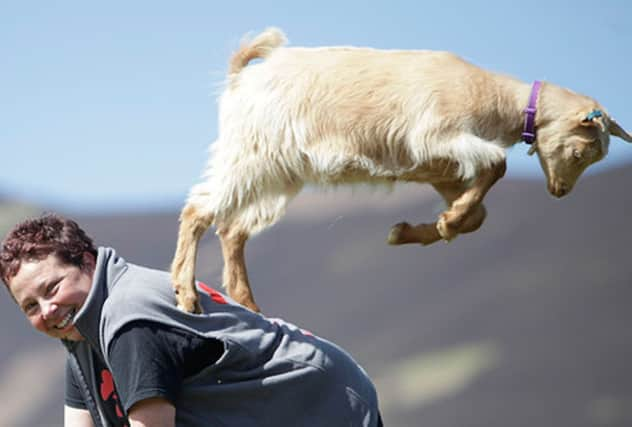Farm diversification for a profitable future


Tourism is a mainstay of the Scottish economy, worth £11 billion a year and paying the wages of 200,000 people.
We can all point to the obvious cornerstones of the industry, but we should not forget one of the unsung heroes of Scotland’s tourism offering which is to be found quietly going about its business in the area of agri-tourism.
Advertisement
Hide AdAdvertisement
Hide AdThe traditional farmhouse bed and breakfast has for a long time played a significant part in this reliable and growing sector and many of the providers of these tourism businesses are owners of farms and rural estates.
Scottish Land & Estates has been promoting the benefits of business diversification to its members, from agriculture into tourism, and there are now much greater levels of interest amongst both providers and guests, all of which is helping to project agri-tourism increasingly into the spotlight. Agri-tourism is described by Scottish Enterprise as “tourism on a working farm in which visitors can experience a direct connection with the host farm, rural life and/or the local environment”.
Staying on or visiting a farm or estate is a great way for visitors to experience Scotland’s rural landscape and outdoor activities and includes accommodation, farm shops, farm attractions and tours, agricultural exhibits, wildlife tours, not to mention country sports and much more.
Land and farm owners, who already manage much of Scotland’s landscape, are ideally placed to diversify, but it takes a lot of time, money and research to get it right.
Two such farmers who have taken the brave step into tourism are Neil Gourlay and his wife Mary of Three Glens House, a luxury catered holiday getaway in Moniave, Dumfriesshire; and Caroline Millar of the Hideaway Experience, Auchterhouse, near Dundee, providing luxurious escapes for couples. Both Caroline and Neil have recognised the need to diversify into something exciting, but that requires a completely different skill-set to farming albeit one that works very much in tandem with it.
Speaking at the Oxford Farming Conference last week, Caroline revealed that at the Hideaway Experience, run by her and husband Ross, less than 0.6 per cent acres of their land is utilised by the agri-tourism business. However, it generates comparable turnover levels and more profit than the farm and has had no impact on output of the farming operation.
Caroline has also stated the importance of agri-tourism to the local economy and to farming businesses and her belief that with 85 per cent of farming in Scotland classified as a Less Favoured Area, doing more than just farming is a necessity.
And she makes a bold prediction in saying that farm diversification will overtake the main core farming enterprise of agricultural production, in terms of contribution to profits, in most parts of the UK over the next ten years.
Advertisement
Hide AdAdvertisement
Hide AdCaroline is so confident in her assessment that she launched www.goruralscotland.com two years ago, which aims to promote agri-tourism businesses to Scottish city dwellers.
Neil Gourlay, a fourth generation farmer, has achieved his lifetime’s ambition by developing a luxury eco holiday house: a beautiful, organic building that is free from future utility bills and blends seamlessly into the landscape.
He has moved a long way from the traditional farm in order to provide a lasting legacy and something to continue driving rural economic development in the area. This project also boasts a range of renewable energy features and the creation of insulation from the farm’s sheep.
Estate and land owners, the majority of whom are farmers themselves, are long-term investors. A recent survey of our members revealed that their rural development projects – including tourism – over the next ten years will amount to investment of around £1bn.
When you take into account that land-based businesses employ 10,000 people and are committed to significant energy and tourism projects, we believe that adds up to a substantial and very worthwhile contribution to the rural Scottish economy.
The efforts of the likes of Caroline Millar and Neil Gourlay are emblematic of the entrepreneurial spirit of land and rural business owners and their willingness to invest in rural Scotland. Tourism is at the heart of our economy and is gratifying for all those involved that agri-tourism is playing its part.
• Douglas McAdam is chief executive, Scottish Land & Estates www.scottishlandandestates.co.uk
SEE ALSO